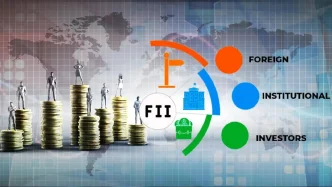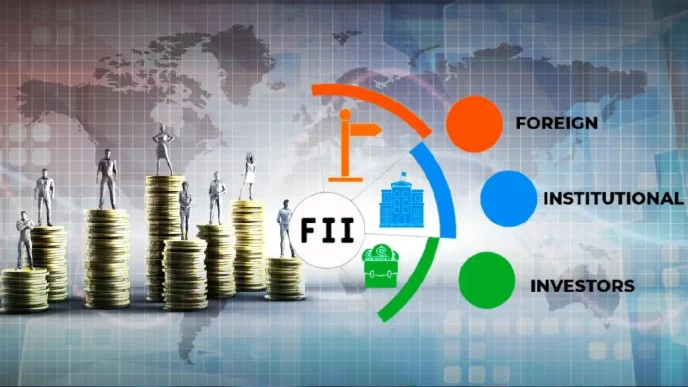Thailand is positioning itself as a regional powerhouse in artificial intelligence (AI), with a staggering $15.4 billion investment in infrastructure and a national ambition to train 90,000 AI professionals. Yet, as the country races toward technological dominance, a new study unveiled at the inaugural PRCA Thailand Conference 2025 reveals a public both intrigued and wary. An overwhelming 92% of Thais demand transparency from brands and institutions about AI use, underscoring trust as the linchpin of acceptance in this rapidly evolving landscape.
The research, titled The Impact of AI on Thai Society and conducted by PRCA APAC in collaboration with YouGov, paints a nuanced picture of a nation embracing innovation while grappling with its risks. Presented on August 6, 2025, at SCBx NEXT Tech in Bangkok’s Siam Paragon, the findings highlight a public eager for regulation, education, and ethical guidelines as AI reshapes industries and daily life.
Trust as a Non-Negotiable
The study’s most striking revelation is the near-universal call for transparency. A remarkable 92% of respondents insist that brands disclose when AI is used in products, services, or communications. Trust levels soar among younger demographics—37% of Gen Z and 31% of young families express greater confidence in companies that are upfront about their AI practices. This sentiment reflects a broader societal expectation that openness is not just a courtesy but a prerequisite for legitimacy in the digital age.
Dr. Karine Lohitnavy, Chair of PRCA Thailand and Founder of Midas PR, emphasized this point at the conference. “Trust and transparency aren’t just public expectations, they’re now brand imperatives in the AI era” she said on August 6, 2025. She argued that communicators must bridge the gap between cutting-edge innovation and public understanding, ensuring that ethical, human-centered storytelling remains at the forefront of corporate strategies.
This demand for clarity is not without cause. Public concerns are dominated by fears of AI misuse, with 40% of respondents citing it as their primary worry. Issues such as misinformation, deepfakes, privacy breaches, and ethical dilemmas follow closely behind. Notably, Gen X and rural communities express heightened caution, suggesting that socioeconomic and generational divides influence perceptions of AI’s risks.
AI as a Tool, Not a Replacement
Despite these apprehensions, there is a cautious optimism about AI’s potential. Over half of those surveyed—55%—believe AI enhances efficiency, particularly in professional settings. However, there is a strong consensus that it should augment, not supplant, human creativity. This perspective was echoed by Narongyod Mahittivanicha, Founder of TWF Agency and Vice President of the Artificial Intelligence Association of Thailand, during his address at the conference. Drawing on a recent high-profile public relations campaign, he highlighted the irreplaceable value of human emotional intelligence and nuance—qualities AI has yet to master.
Industry leaders at the event reinforced this view. Jaruwan Vorarakthananun, Communications Lead at Microsoft Thailand, spoke during a panel discussion about AI’s role as an enabler. “AI isn’t here to replace communications professionals—it’s here to empower us” she stated on August 6, 2025. She urged professionals to embrace AI as a trusted assistant, capable of streamlining tasks and amplifying impact, while stressing the importance of guiding its development to align with human needs.
The Evolving Role of Traditional PR in an AI World
The conference also tackled how traditional public relations tools, like the press release, remain relevant amid technological upheaval. In a fireside chat titled “Viva La Press Release! Old Format, New Tech” Jennifer Kok, Founder and CEO of Media OutReach Newswire, underscored the enduring power of controlled messaging. “In today’s digital publishing and AI era, press releases play a vital role in driving brand trust through verbatim, guaranteed posting on authoritative news websites” she said on August 6, 2025. She argued that such mechanisms allow PR professionals to shape narratives precisely, a critical asset as AI tools reshape content creation and distribution.
Panels featuring executives from Microsoft Thailand, SCBx, Predictive, and Xponential Co. delved into AI’s practical applications in brand reputation and public perception. Moderated by Edelman Thailand’s Vorasit Turongsomboon and digital creator Tossapol Leongsuppon, these discussions explored pressing issues like ethical governance and influencer transparency. A recurring theme was the public’s call for structured AI education—both online and offline—and stronger governmental oversight to ensure ethical standards and skill development keep pace with innovation.
Thailand’s AI Ambitions in a Regional Context
Thailand’s aggressive push into AI is part of a broader regional trend across Southeast Asia, where countries like Singapore and Vietnam are also investing heavily in digital transformation. With a $15.4 billion commitment to infrastructure, Thailand aims to cement its status as a hub for technological innovation. The national plan to train 90,000 AI professionals signals an intent to build a workforce capable of sustaining this growth, positioning the country to compete on a global stage.
Yet, the PRCA-YouGov study suggests that technological advancement alone will not suffice. Public trust, cultivated through transparency and ethical practices, is equally critical. The high demand for regulation—voiced by a significant portion of respondents—indicates that Thais expect their government to play a proactive role in shaping AI’s trajectory. This includes crafting policies that address privacy concerns, combat misinformation, and ensure that AI serves societal good rather than exacerbating inequalities.
Comparatively, Singapore has already implemented frameworks like the Model AI Governance Framework, updated in 2024, to balance innovation with accountability. Thailand could draw lessons from such models, adapting them to its unique cultural and economic context. Meanwhile, Vietnam’s National Strategy for AI Development by 2030 emphasizes ethical guidelines alongside technical progress, reflecting a similar public sentiment to that seen in Thailand. These regional parallels underscore a shared challenge: how to harness AI’s potential without eroding trust or compromising values.
Navigating Risks and Opportunities
The risks associated with AI are not abstract for many Thais. Misinformation and deepfakes, often amplified through social media, pose tangible threats to public discourse and personal privacy. Rural communities, which may lack access to digital literacy programs, are particularly vulnerable to such challenges. The PRCA study’s finding that 40% of respondents fear misuse highlights the urgency of addressing these issues through education and regulation.
At the same time, AI offers transformative opportunities for Thailand’s economy and society. In sectors like agriculture, manufacturing, and tourism—all critical to the national GDP—AI-driven efficiencies could boost productivity and competitiveness. For instance, predictive analytics could optimize crop yields for farmers in Isaan, while AI chatbots enhance tourist experiences in destinations like Phuket and Chiang Mai. The key, as conference speakers reiterated, is ensuring that such benefits are accessible and equitably distributed.
Public relations professionals, positioned at the intersection of technology and communication, are uniquely equipped to facilitate this balance. By advocating for transparency and ethical storytelling, as Dr. Lohitnavy suggested, they can help demystify AI for the average citizen. This role becomes even more crucial as brands increasingly integrate AI into marketing and customer engagement, raising questions about authenticity and accountability.
The Road Ahead
As Thailand forges ahead with its AI ambitions, the insights from the PRCA Thailand Conference 2025 serve as a timely reminder of the public’s priorities. Transparency, trust, and ethical governance are not optional extras but foundational elements of sustainable progress. The government, private sector, and civil society must collaborate to address the concerns of misuse and misinformation while equipping citizens with the tools to navigate an AI-driven future.
The call for education is particularly resonant. Many Thais, across urban and rural divides, seek practical guidance on how AI works and how it impacts their lives. Initiatives to integrate AI literacy into school curricula, community programs, and online platforms could bridge this knowledge gap, fostering informed engagement rather than fear or skepticism.
Moreover, the demand for regulation suggests a public ready to hold both policymakers and corporations accountable. Crafting frameworks that prioritize privacy, equity, and ethical use will be essential to maintaining social cohesion amid rapid technological change. Thailand’s journey with AI is still in its early stages, and the choices made now—by leaders, brands, and communicators—will shape whether this revolution is met with confidence or caution.
For now, the message from Bangkok is clear: innovation must not outpace trust. As Thailand builds its digital future, ensuring transparency and human-centric values remain at the core will determine whether AI becomes a unifying force or a divisive one.















